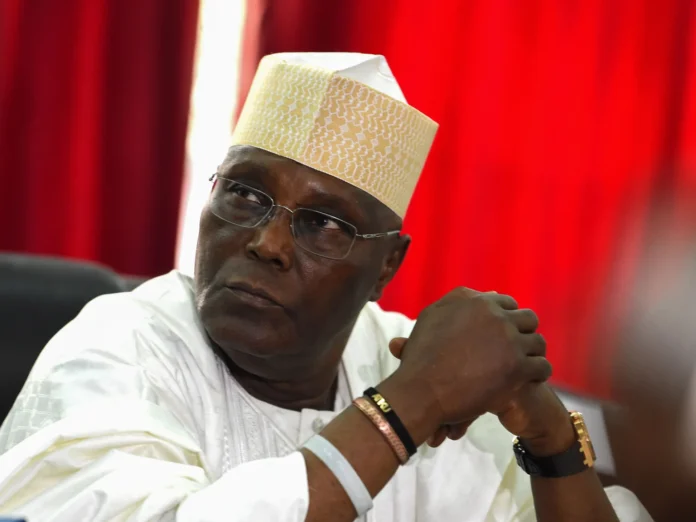Lere Olayinka, the Senior Special Assistant on Public Communications to Federal Capital Territory (FCT) Minister Nyesom Wike, has pointed the finger at former Vice President Atiku Abubakar as a key factor in the problems currently afflicting the Peoples Democratic Party (PDP).
He asserted that Atiku consistently prioritizes his personal ambitions over the party’s collective interests, and he criticized the PDP leadership for not holding him accountable.
In an interview, Olayinka discussed the internal struggles within the PDP and the party’s prospects for reclaiming power in 2027. He expressed that Atiku’s actions have been detrimental to the party, claiming that the former Vice President has historically incited dissent within the PDP, contributing to its decline, including the significant loss experienced by former President Goodluck Jonathan in the 2015 elections.
Olayinka suggested that the resolution of the party’s issues could be achieved if Atiku were to step back from his 2027 presidential aspirations. He urged Atiku to reconsider his candidacy and to support the party’s eventual nominee instead.

According to Olayinka, Atiku is not the sole member of the PDP, and the party’s future should not revolve solely around him. “The core issue is the absence of a consistent principle of reward and punishment within the party. Individuals who have actively undermined the party in the past faced no repercussions. For instance, in 2003, there were efforts to prevent the PDP from securing Lagos State, which would have had significant implications.
The same individual responsible for this sabotage later established another party, Action Congress, in 2007, and even ran for president as a sitting Vice President, yet faced no consequences for his actions. When he returned to the PDP, instead of being sanctioned, he was welcomed back without any accountability, which led to the rebellion in 2014. Had this individual not instigated that rebellion, it’s possible that the PDP would not be in its current predicament, and Goodluck Jonathan might have retained the presidency,” he explained.
Olayinka emphasized that the roots of the PDP’s current challenges can be traced back to events in 2003, with subsequent developments in 2007 and 2014 all influenced by a single person’s actions. He stated, “Now, this individual asserts that he is the only one capable of leading the party in 2027, which is simply unacceptable. If Atiku were to announce that he would not run again, it would significantly reduce the ongoing crisis within the PDP, as party members are now more discerning.”
He recalled that after losing the presidential ticket in 2019, Atiku distanced himself from the party for over two years, leaving its management to other prominent figures such as Wike, Fayose, and several governors who supported the party during his absence. Olayinka concluded that Atiku should now embrace a role as a mentor and allow others to lead, stating, “He should recognize that he has had his chance. It’s time for him to step back and support the next candidate without insisting that it must always be him.”




